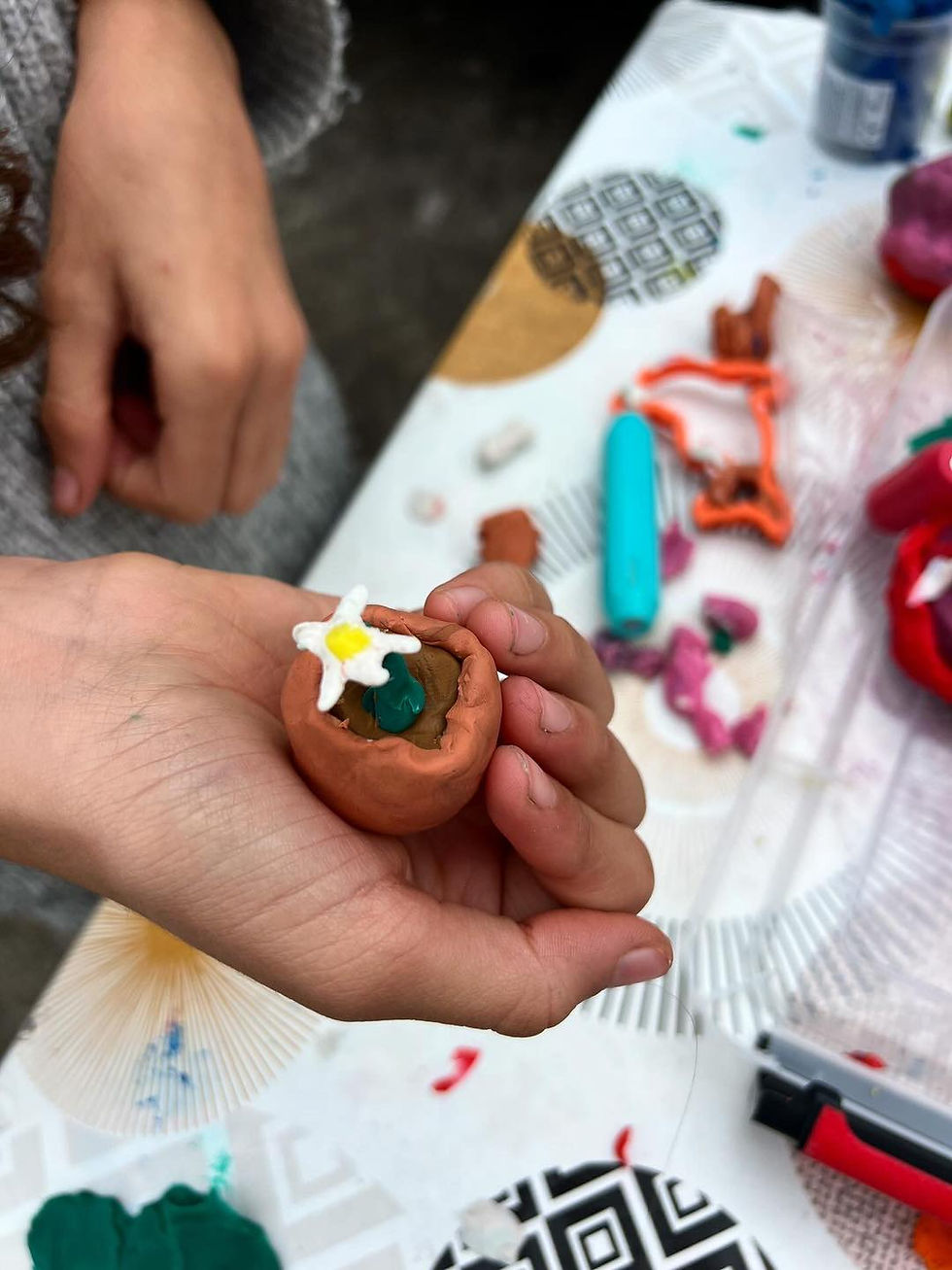Being in the Here and Now
- Art Refuge

- Dec 9, 2016
- 3 min read

Northern France
On arrival in Dunkerque we spent a little time with the team we work alongside at with Médecins du Monde. Together we recognized the huge challenges of engagement for people who exist within a wider environment that feels oppressive. Following a day in which the team reported tensions in the space, we worked hard to renew the sense of care and attention in the safe space, and had a calm day of creativity and special moments of change. The room was full of diverse groupings, pre-adolescent boys playing Uno, occasionally the noise of their competitiveness interrupting the calmness. Groups of adults established themselves around the room, some drank coffee and began to sing, whilst others gathered around the art materials and settled into a now familiar activity.
A map projected onto a cloth surface on the wall, instigated discussion and shared attention in locating and describing hometowns and landscapes in the groups countries of origin. The children gently migrated around the room, bringing their small creations to be witnessed and praised by the adults. Others played in the arms of their uncles and aunties, giving a strong sense of community. A three-year-old boy tenaciously stuck sellotape onto sequin and paper shapes to fix them solidly onto the table. He was slowly able to move from his sanctuary under this table to fix his sellotape bunting to the group surface hanging on the wall.
On seeing it loosely attached, he applied strips of tape, time and time again to ensure his creation was secure.
Meanwhile his older sister meticulously constructed a multi-coloured wheel that was held together by similar shapes as her brother. We wondered if she had remembered another creation from the previous week. She went on to complete several carefully coloured Mandalas gaining great satisfaction and pride in her accomplishment.
We witnessed these children’s parents tentatively engage further with the activities we offered in the space. Slowly finding their way to gain much needed support, validation and pleasure despite the challenges they face living in the camp.
A young man returned to the space expressing pleasure in having access to good quality art materials. He took great pleasure in sensitively drawing the portraits of his companions. The intimacy and sense of familiarity that were held by artist and model was greatly appreciated by the entire group. It stimulated discussion and interest in art and artists, encouraging the group to investigate and share in discovering our collection of postcards.
Another little girl, who spoke good English made a doll that was a mummy and then became a princess. She then communicated that she wanted to make a present for her mum, who was in Prison nearby and whom she was going to see her for the first time tomorrow. She made an envelope that was filled with sequins, coloured shapes and paper hearts.
A mother with whom we have worked for a number of weeks and who struggles with depression and isolation was able to join in creating an appliqué scene alongside one of our team. Careful encouragement enabled her to tentatively test and explore materials, finding pleasure and beauty in her accomplishment. Pinning her work onto the cloth brought her closer to the community of the space as others recognised and valued her sensitive creativity. The small shifts of expansion and progression of a creative moment
On Friday we attended a series of meetings with the different organisations with whom we work alongside to plan and develop ongoing involvement in Dunkerque and Calais.
Much discussion was had about how we can support people in managing to stay present in their current contexts. In these discussions we shared reflections on our experiences of working with the adults, adolescents, children and families in Dunkerque and Calais; the incredible and diverse ways so many people have demonstrated to us that play and art making enables this much needed and healthy absorption in the moment. Finding gentle ways in to being in the here and now.



Comments